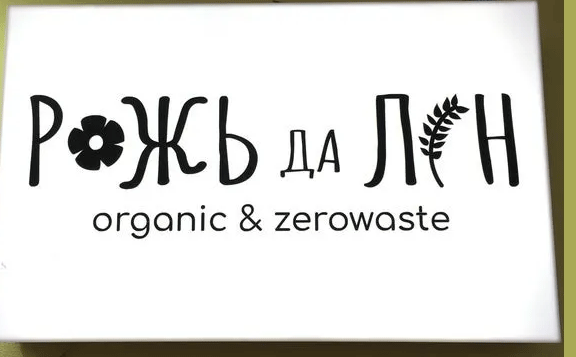From Passion to Mission: A New Kind of Organic Retail
When Olesya and Evgeny Ermolins decided to leave their traditional careers to open an organic store, they aimed to create more than just a business—they wanted to make an impact. Located in Reutov, their store “Rye and Flax” has become a beacon for sustainable retail and a model for integrating eco-conscious practices into everyday shopping.
The Road to Organic Living
The Ermolins’ interest in organic products began with their journey into mindful eating and sustainable consumption. Like many, they initially focused on eating more fruits, vegetables, and greens, but soon realized the importance of understanding how food is produced. Unable to find a single store offering a comprehensive selection of organic goods, they decided to create their own.
Despite their lack of experience in agriculture or retail, Olesya and Evgeny leveraged connections with organic farmers—individuals they describe as idealistic and mission-driven. Their store, they believed, would not just sell organic products but also educate the community about sustainability.
Zero-Waste and Eco-Friendly Practices
“Rye and Flax” operates on a zero-waste principle. Every aspect of their business is designed to minimize environmental impact:
- Packaging: Products are sold in recyclable or reusable materials. Customers are encouraged to bring their own containers and receive discounts for doing so.
- Logistics: The store reuses packaging from suppliers and partners with farmers to return sterilized glass jars for reuse. Even vegetable soil is repurposed for local greenery.
- Delivery: Their delivery vehicles run on eco-friendly fuels like propane and methane, with green tires and optimized routes to reduce carbon footprints.
Breaking New Ground in Organic Certification
The Ermolins took their commitment further by certifying “Rye and Flax” as an organic store under European standards (Euroleaf)—a first in Russia. This certification required rigorous audits of their suppliers, storage methods, and cleaning processes. To meet these standards, over 95% of their inventory must be organic.
They have also advocated for including retail certification in Russia’s organic standards, a step that could boost the credibility and visibility of organic agriculture across the country.
Challenges and Community
Not everyone understands or appreciates their mission. While some are inspired to embrace sustainability, others question the necessity of their practices. However, the Ermolins are undeterred. Their clients and employees—many of whom started as customers or volunteers—form a supportive network of like-minded individuals who share their vision for a cleaner, healthier planet.
Future Goals
The Ermolins aim to expand their reach by developing an online store and improving temperature-controlled delivery to other cities. They also seek to grow their team, prioritizing individuals who share their passion for sustainability over those seeking financial incentives alone.
“Rye and Flax” exemplifies how dedication to sustainability can transform not only a business but also an industry. By prioritizing eco-friendly practices, fostering community, and advocating for better standards, Olesya and Evgeny have set a precedent for organic retail in Russia. Their story is a reminder that meaningful change often starts with individual action, supported by a shared commitment to a better future.
Error





